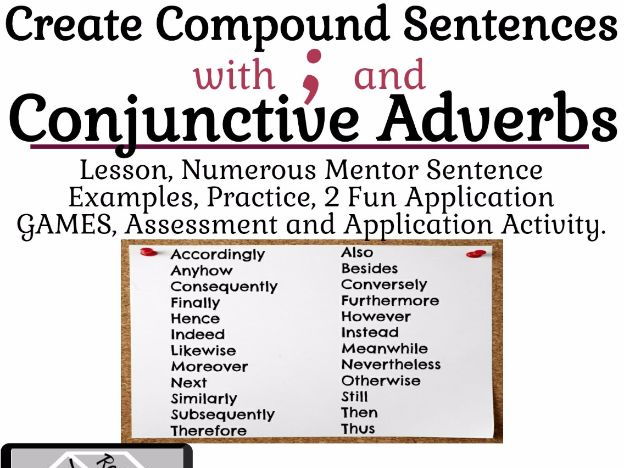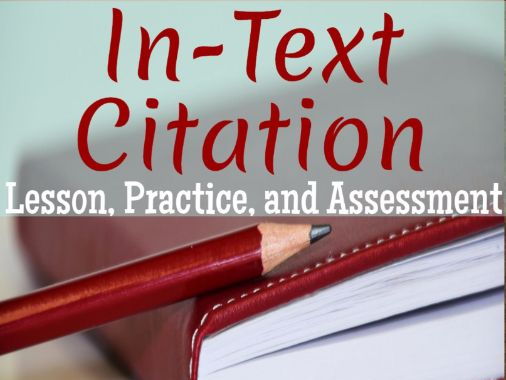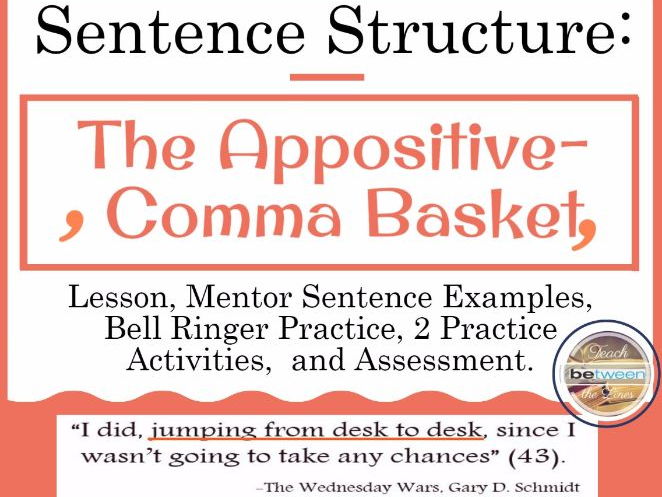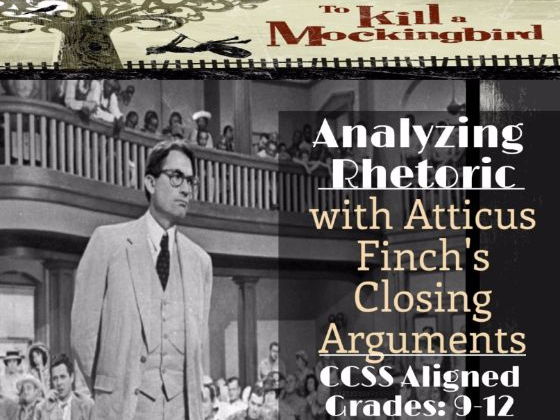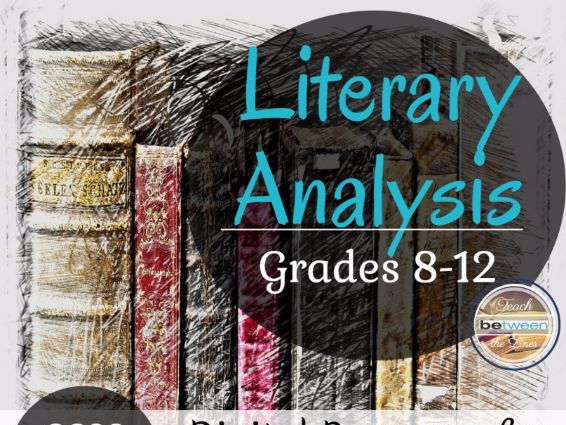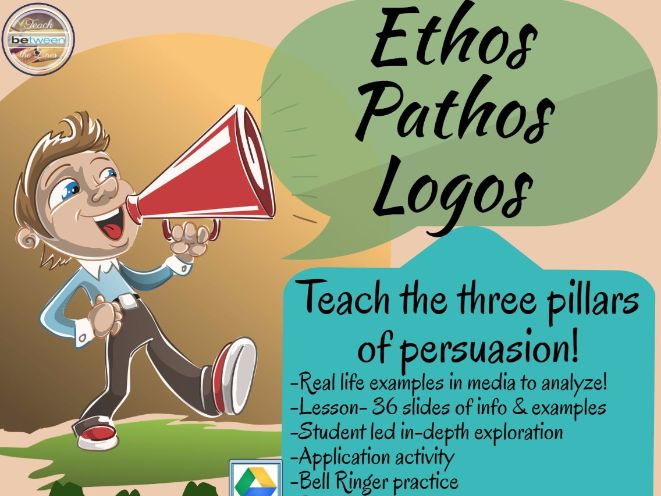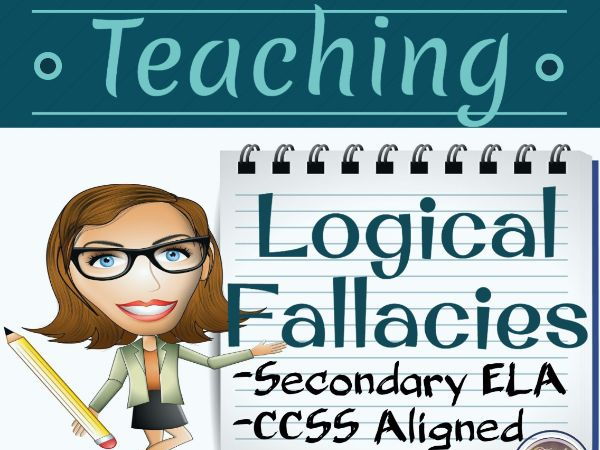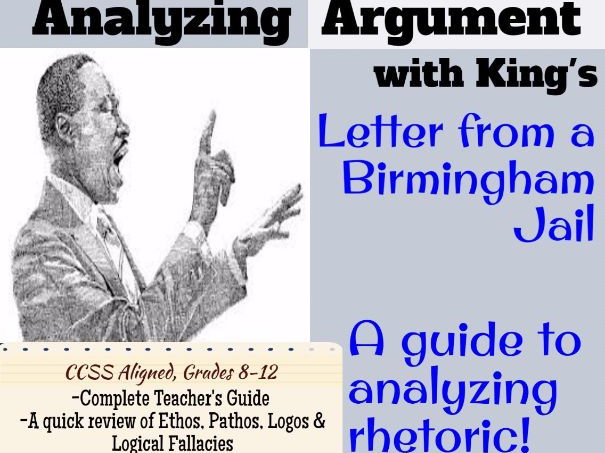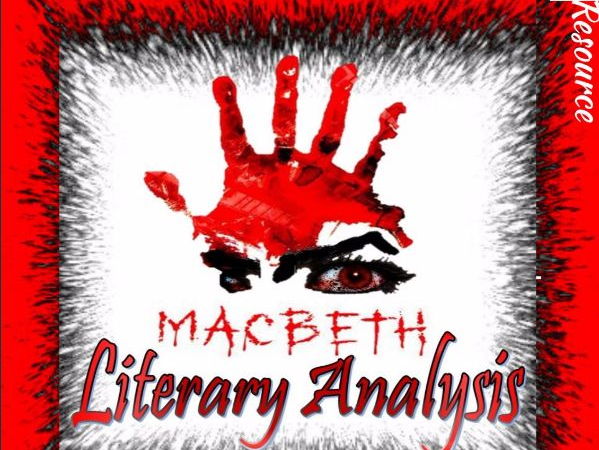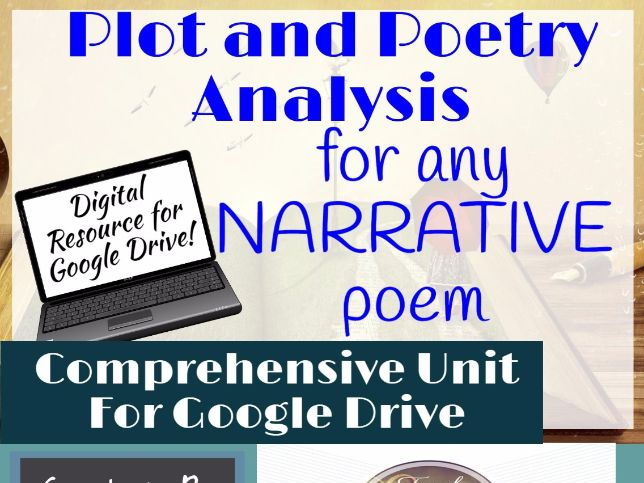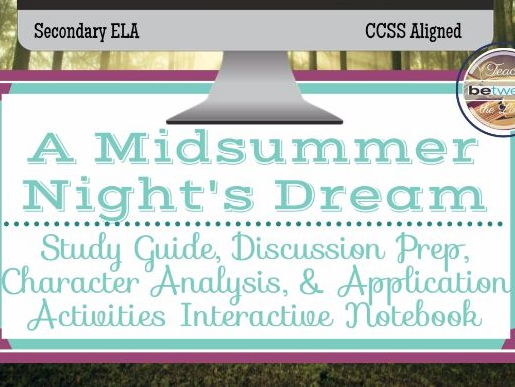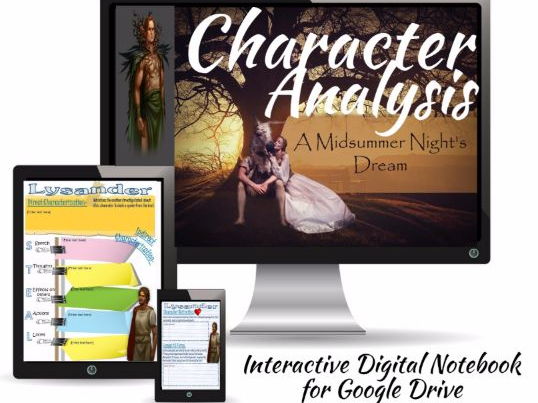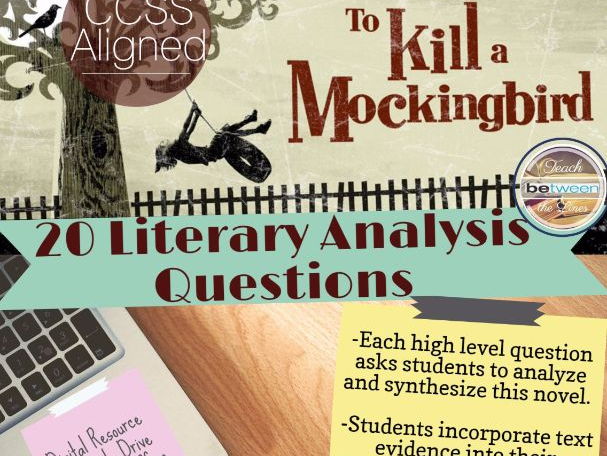
31Uploads
12k+Views
440Downloads
All resources

Rhetorical Analysis Unit Bundle- Digital and Printable!
Teach students how to analyze an author’s arguments with any given argument! Perfect for personalizing or differentiating learning as it provides a great deal of voice and choice for your learners!
Analyzing an author’s arguments can be challenging for students; however, this step-by-step method will make this skill clear and easy while creating an in-depth analysis! Everything to teach rhetoric, and logical fallacies is included. Show your students how to analyze the rhetoric/fallacies/message/language of any author’s argument.
Combines the following four complete units!
1. Ethos, Pathos, Logos
2. Logical Fallacies
3. Ethos, Pathos, Logos and Logical Fallacies Bell Ringer activities
4. Argument Analysis Lesson

Writing the Argument Essay Complete Unit Bundle + Student Interactive Notebook
Teach your students how to write that argument essay with this complete unit bundle!
What is included:
1. Complete student interactive notebook (both digital and print) keeps all documents for the unit in one, beautifully designed place.
2. Lesson on writing a quality, engaging hook (lead) statement with fun, interactive hook stations activity to practice the skill.
3. Lesson on writing a thesis using the thesis generator I created. This ‘generator’ uses a step by step guide to create an arguable thesis statement in formal writing.
4. Lesson on in-text citation with valuable note taking documents within the interactive notebook. Teach students to seamlessly incorporate evidence within their paragraphs.
5. Lesson on crafting an argument with specific graphic organizers for support and strong examples provided with the interactive notebook.
6. Lesson on crafting the counterargument paragraph with the formal 5 point counterargument method. Specific graphic organizers, note taking documents, and strong examples support students as they draft the ideal counterargument paragraph.
7. Graphic organizers take students through the entire paper. Two sets of organizers are included within this purchase for differentiation. Set A will support younger or struggling writers, while set B will encourage depth and complexity from your stronger, more experienced writers.
8. Rubric for assessment
9. Two beautifully designed class posters: - 5 point counterargument model poster -citing sources poster
10. Handouts for supporting students with transition words, strong academic language, persuasive language, citing evidence sentence starters, etc.
11. Google Links Page- digital links to ALL documents for digital classrooms
12. Printable pages for non-digital classrooms
13. Lesson plan/suggestions for teaching

Semicolons and Conjunctive Adverbs Lesson, Practice, Games, and Assessment
Teach your students how to create compound sentences with semicolons, and compound sentences with semicolons and conjunctive adverbs! This Lesson will provide your students with explicit explanations using mentor sentences, two fun games, two great practice activities, application activities, and a potential summative assessment!

In-Text Citation Lesson, Practice, and Assessment, MLA 8th Edition
The MLA 8th edition lesson on incorporating textual evidence (quotations with parenthetical citations) will help your students learn:
-How to create an in-text citation with and without an author's name.
-How to lead into or out of a quote with the student's own words.
-How to pepper a quote.
-How to delete parts of the quote to seamlessly incorporate the evidence into the student's paragraph.
-How to incorporate the title and/or author in signal phrases prior to a quotation.
-Block style quotations.
-How to cite dialogue
-Examples from quality literature for each type of citation.
-Text Evidence Trouble-Shooting Guide teaches students to fix common mistakes such as orphaned quotes, transition phrases, summarizing instead of analyzing, and big, chunky quotes. Support and examples are provided through this document, and the lesson activity that accompanies it.
-5 Days of Bell Ringer Practice Activities
Practice:
-Three practice documents (Google Doc, PDF, and Word document) using examples from literature. (Could be used as a quick quiz)
Summative Assessment:
Students are given three passages, one fiction and two non-fiction texts- with relating themes (social justice). They are asked to close read, then respond to the given prompt using evidence from two of the three sources. They are supported in doing so with detailed graphic organizers, and asked to seamlessly incorporate text evidence for the assessment.

Sentence Structure with the Appositive (the comma basket)
Teach your students how to use commas around their appositive phrases! This Lesson will provide your students with explicit explanations on sentence structure using mentor sentences, bell ringer practice, two great practice and application activities, and a summative assessment!

Sentence Structure and Sentence Variety Using Adverbs!
Adverbs create introductory phrases, appositives, and closing phrases!
Teach your students how to use adverbs to create sentence variety with adverbs! This Lesson will provide your students with explicit explanations on sentence structure using mentor sentences, bell ringer practice, interactive notebook, practice activities, application activities, and a potential summative assessment!

Complete Tone and Mood in Literature Bundle + Connotation and Denotation
Teach your students how to understand the complex topic of tone and mood in literature!
1. Lesson on Tone and Mood
2. Lesson on Connotation/Denotation
3. Tone and Mood Exploration through music, video games, film, art, literature, photography, and memes!
4. Tone and Mood Mini-Lesson
5. Tone and Mood Notes
6. Tone and Mood Project- over 8 choices for summative assessments!
7. Bell Ringer Activities- for each day of the unit!

Analyze an Author's Argument with Atticus Finch's Closing Arguments-
Teach students how to analyze an author’s arguments with Atticus Finch’s Closing Arguments!
Analyzing an author’s arguments can be challenging for students; however, this step-by-step method will make this skill clear and easy while creating an in-depth analysis! Everything to teach rhetoric, logical fallacies is included. Show your students how to analyze the rhetoric/fallacies/message/language of any author’s arguments through this iconic passage from To Kill a Mockingbird.
Includes:
- PowerPoint and Google Presentation on rhetoric and logical fallacies
-PowerPoint Presentation and Google Presentation to introduce this step-by-step method
-Close reading passage of Atticus Finch’s closing arguments
- Analyzing rhetoric graphic organizer
- Reader response questions to further depth of analysis
- Separate logical fallacies PowerPoint and Google Presentation
- Separate Rhetoric PowerPoint and Google Presentation
- Note taking documents for both logical fallacies and rhetoric lessons
- Lesson plans
- Lesson plans on teaching close reading strategies with this closing argument
- Google Apps Links to Google Presentations and Organizer Google Documents
- Student sample analysis

Literary Analysis Made Easy (Digital and Printable!)
Literary Analysis Made Easy!
Teach your students this easy step-by-step process for developing a rich, insightful, and well supported literary analysis. Breaking down this challenging process for students allows for further depth in each key area of a quality response!
Included:
-Google Slides Presentation & PowerPoint on the steps for writing a literary analysis
-Graphic organizer (Google Doc, Word Doc, and PDF) that breaks down each step
-Topics and elements to analyze classroom poster and lesson (3 different sizes)
-Rubric for assessment
-Assess the Examples Activity provides examples and discussion prompts for better response techniques.
-Lesson plan, with slide notes for easy, no prep plans!

Rhetoric- Ethos/Pathos/Logos Bell Ringer Activities!
These quick 5 minute bell ringer activities give students an opportunity to identify real life examples of rhetoric. Engaging advertisements, PowerPoint and Google slides to present material, handouts for student application (or Google Document provided) and answer slides to facilitate quick discussion and understanding.
Includes:
1. PowerPoint bell ringer slides (47 slides) for 23 bell ringer activities!
2. PowerPoint answer slide for each bell ringer means NO teacher prep!
3. PDF Printable bell ringer handouts (23 pages)
4. Google Presentation bell ringer slides for digital classrooms
5. Google Document handouts for digital classrooms with student directions for use.

Logical Fallacies made Easy!
Logical Fallacies are a critical component of your argument Common Core standards! Teach your students this critical life skill through engaging, real-life examples, videos, commercials, print advertisements, and literature examples.
Included with Purchase:
-Real life examples in media to analyze!
-Lesson- 32 slides explain, with great depth, the 12 most common fallacies with definitions, examples, videos, commercial/media applications, debate examples, written examples, and Bell Ringer practice applications.
- Notes document allows students to record definitions and examples for future use within your argument unit, the assessment, and the Bell Ringer practice.
-Real life examples in media and politics to analyze!
-Application activity that gets students moving and collaborating.
-Bell Ringer practice to reinforce skills each day and engage students in learning! Beautifully designed for Google documents with one bell ringer per page. Word/PDF documents put 3 to a page for easy printing!
-Google Docs, Microsoft Office, and PDF documents provided.
-No Prep Plans- Just print or link and go!
-Lesson plans/suggestions for teaching included!

Analyzing Arguments with Dr. King's Letter from a Birmingham Jail
Teach students how to analyze an author’s arguments with Martin Luther King Jr.’s Letter from a Birmingham Jail!
Analyzing an author’s arguments can be challenging for students; however, this step-by-step method will make this skill clear and easy while creating an in-depth analysis! Everything to teach rhetoric, and logical fallacies is included. Show your students how to analyze the rhetoric/fallacies/message/language of any author’s arguments through this iconic passage from Martin Luther King Jr.’s Letter from a Birmingham Jail.
Includes:
- PowerPoint and Google Presentation on rhetoric and logical fallacies
- PowerPoint Presentation & Google Presentation to introduce this step-by-step method
- Close reading passage of Dr. King’s Letter from a Birmingham Jail
- Analyzing rhetoric graphic organizer
- Reader response questions to further the depth of analysis
- Separate logical fallacies PowerPoint and Google Presentation
- Lesson plans
- Lesson plans on teaching close reading strategies with this passage
- Google Apps Links to Google Presentations & Graphic Organizer Google Documents
- Extended response questions allow students to craft their own argument in response to this text.
Do your students need more than a quick review with Ethos, Pathos, Logos & Logical Fallacies? Check out my Complete Guide to Analyzing King's Argument BUNDLE!

Shakespeare's Macbeth: Theme Analysis and Theme Literary Response Essay
This unit is both a digital student interactive notebook, and a printable interactive notebook for non-digital classrooms!
Teach Theme Analysis and Thematic Literary Response Essay for Shakespeare’s Macbeth!
Students will collaborate in literary circles on the topic of theme development- I call this the Theme Tracker Task Force group. Students will track the four most prevalent theme topics as they read through the play. The chart/lesson provided allows students to track evidence of the thread of each topic throughout the text as they read. They are then able to discuss this evidence and theme development, further preparing for their theme analysis essay.
Theme Google Presentation/PowerPoint lesson will get students started in tracking the four important themes within this play. Guiding questions break down each theme for better understanding as students navigate Macbeth.
Students are provided with seven theme essay topics/questions to choose from as they begin to develop their essays. This allows for voice and choice in learning, yet each question specifically relates to the themes students have been tracking throughout the play.
Literary analysis lesson included to support your students in analyzing literature for this essay.
The graphic organizers provided will allow your students to craft this essay in a supported, step-by-step manner.
Thesis builder teaches the process of drafting a literary analysis thesis. Students are supported as they draft each important piece of their theme analysis thesis statement.
16 Slides, 23 Pages

Shakespeare's Macbeth: Literary Analysis Complete Unit
acbeth, Shakespeare, Macbeth activities, Macbeth Lessons, Macbeth bundle, Macbeth by Shakespeare, Macbeth Common Core Activities, Essay Writing, Graphic Organizers
Teach students the art of literary analysis with Shakespeare's drama filled play- Macbeth
Included:
Literary Analysis Google Slides/PowerPoint Lesson
---Graphic Organizers and Rubric to assess examples of literary analysis *examples provided*
Beautiful Literary Analysis Poster- in two sizes
8 high level, extended-response essay questions for quality literary responses.
--- Detailed graphic organizers for support in drafting this quality response.
Optional complete literary analysis essay + graphic organizers to support students in drafting the full 5 paragraph essay!

Poetry Analysis for any Narrative Poem Digital or Printable Unit
This Narrative Poetry unit is perfect for personalized, differentiated, flipped, and/or 1:1 technology classrooms!
AND
This pack also works great in teacher led and planned traditional classrooms! PDF printable options are included on EVERY activity! I have included lesson plans and unit plan for both types of instruction!
I have recently opened my teaching style to include a personalized learning platform of teaching and learning. I have relied less on prescribed texts for all students, and started offering more voice and choice in learning options, as well as assessment options. I have included both a standard set of lesson plans, as well as a personalized learning plan and week outline of teaching, coaching, and assessing options.
19 pages covering critical literary analysis skills including extended response questions, and graphic organizer to support in drafting quality responses that include textual evidence! Rubric included!
Topics Covered:
-Plot Analysis
-Tone
-Mood
-Imagery Analysis
-Elements of Poetry
-Foreshadowing
-Irony
-Allusions
-Extended Response Questions- with graphic organizers AND rubric.
Two week personalized teacher plan included!

Shakespeare's A Midsummer Night's Dream: Student Interactive Notebook (Digital)
This 45 page interactive student notebook will help your students fully comprehend and analyze one of Shakespeare’s finest comedies- A Midsummer Night’s Dream. This student guide will take your students through this play from beginning to end, ensuring a deep read and a great wealth of understanding.
This digital interactive notebook includes:
1. Scene by scene comprehension and analysis questions that support students in gleaning the most meaning from the text.
2. Character analysis with guiding questions and graphic organizers for support.
3. Literature Circle (or Socratic Seminar) preparation with guiding questions and a guided dialectical journal.
4. Plot analysis- students track the plot of the four major plot lines within the play with guiding prompts and graphic organizers.
5. Fun summative characterization activity that gets students up and moving, collaborating, and acting with their peers!
Beautifully designed images support with student engagement.
Digital documents allow students to type directly in the file through Google Apps.
PowerPoint and PDF versions provided as well for easy print and go teaching!
Perfect for Secondary and College Education

Shakespeare's A Midsummer Night’s Dream: Character Analysis, Digital & Printable
Teach character analysis with Shakespeare's, A Midsummer Night’s Dream!
Students analyze the characters within A Midsummer Night’s Dream with this fun, engaging, and beautifully decorated interactive notebook.
Students will look at character development, relationships, and interactions within the text.
Character analysis lesson will support students in this process.
Multiple character analysis essay questions provide voice and choice in the summative assessment.
Multiple graphic organizers to support in the development of a strong thesis statement.
Multiple graphic organizers to support in the development of a full character analysis essay.
Crafting a character analysis lesson to teach the process.
Digital document- no printing and copying needed! Just imagine a lunch NOT waiting in line at the copy machine!
PDF versions provided- in case you enjoy the line at the machine!

To Kill a Mockingbird - 20 Literary Analysis Questions!
20 Literary Analysis Questions for To Kill a Mockingbird!
-Each high level question asks students to analyze and synthesize this novel.
-Students incorporate text evidence into their literary response for each question.
-Each question elicits a full paragraph or essay response.
-Covers the entire novel.
-Perfect for:
* novel assessment with voice and choice in writing prompts
* preparation for literature circles
* preparation for socratic seminar discussions
* a study guide

Understanding Paradox in Literature
Teach your students how to understand paradox in literature!
Included:
-Lesson- Google Slides Presentation & PowerPoint Presentation
-Guided Practice, Class Discussion Prompts, and Partner Discussion Prompts using REAL literature examples.
-Partner/small group exploration and practice
-Independent practice
-Paradox Quiz
-Lesson Plan/outline
-Teacher notes on Google Slides/PowerPoint presentation

Shakespeare’s A Midsummer Night’s Dream: Theme Analysis-Digital and Printable!
Theme Analysis in Shakespeare’s A Midsummer Night’s Dream.
Students will collaborate in literary circles on the topic of theme development- I call this the Theme Tracker Task Force group. Students will track the three most prevalent theme topics as they read through the play. The chart/lesson provided allows students to track evidence of the thread of each topic throughout the text as they read. They are then able to discuss this evidence and theme development, further preparing for their theme analysis essay.
Theme Google Presentation/PowerPoint to get students started in tracking the three important themes within this play. Guiding questions break down each theme for better understanding as students navigate A Midsummer Night’s Dream.
Students are provided with five theme essay topics/questions to choose from as they begin to develop their essays. This allows for voice and choice in learning, yet each question specifically relates to the themes students have been tracking throughout the play.
Literary analysis lesson included to support your students in analyzing literature for this essay.
The graphic organizers provided will allow your students to craft this essay in a supported, step-by-step manner.
Thesis builder teaches the process of drafting a literary analysis thesis. Students are supported as they draft each important piece of their theme analysis thesis statement.
21 Slides, 15 Pages



